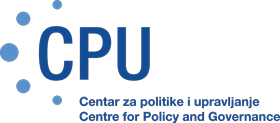
Within its initiative „Road to recovery“, Centre for Policy and Governance produces an analysis that focuses on social and online media, and deals with an interesting trend in BiH and surrounding, and that is the question of media and paramedia content.
“(Self)regulation of social media aimed to eliminate hate speech, incrimination and paramedia content“ is an analysis which is aimed to open the dialogue with all the key participants in the process, media representatives, decision makers and NGO's on these two questions: how to resolve the need that contents on social medias, which often exceeds to hate speech, be regulated through applying an understated and inapplicable legislative, and why do we need an ombudsman for medias and is every regulation a censorship?
Author of the analysis, Faruk Borić said that the criminal law in Federation of BiH and Republica Srpska do not treat hate speech in specifics: „There is a certain mistiness in this area which should be specified through strict amendments on criminal law or on the specific law which would treat and define what is hate speech“.
“For these reasons it is even harder to be defined through single legal norm. However, it is necessary to be done for the reasons that practices shows, because most of the hate speech is not produced through classic media but on internet and in content that is not produced by journalists but in replaced paradigm where difference between the reader and the journalist does not exist, where people through comments produce semi-media, paramedia content where hate speech is common“.
In the virtual world of Bosnia and Herzegovina, and in region, there is a significant percentage of interactive content that is taunting, exchange of insults, glorifying of crime, chauvinism, and even calls for lynch. These contents appear as media or paramedia content. This leads us to conclusion that some form of regulation is needed, but regulation should not be mixed with the censorship of content, auto censorship of professionals or other participants in virtual world. Through regulation we do not advocate delict of opinion and manners, yet we consider it as a function directed towards protection of people from insults, lynch and incrimination.

